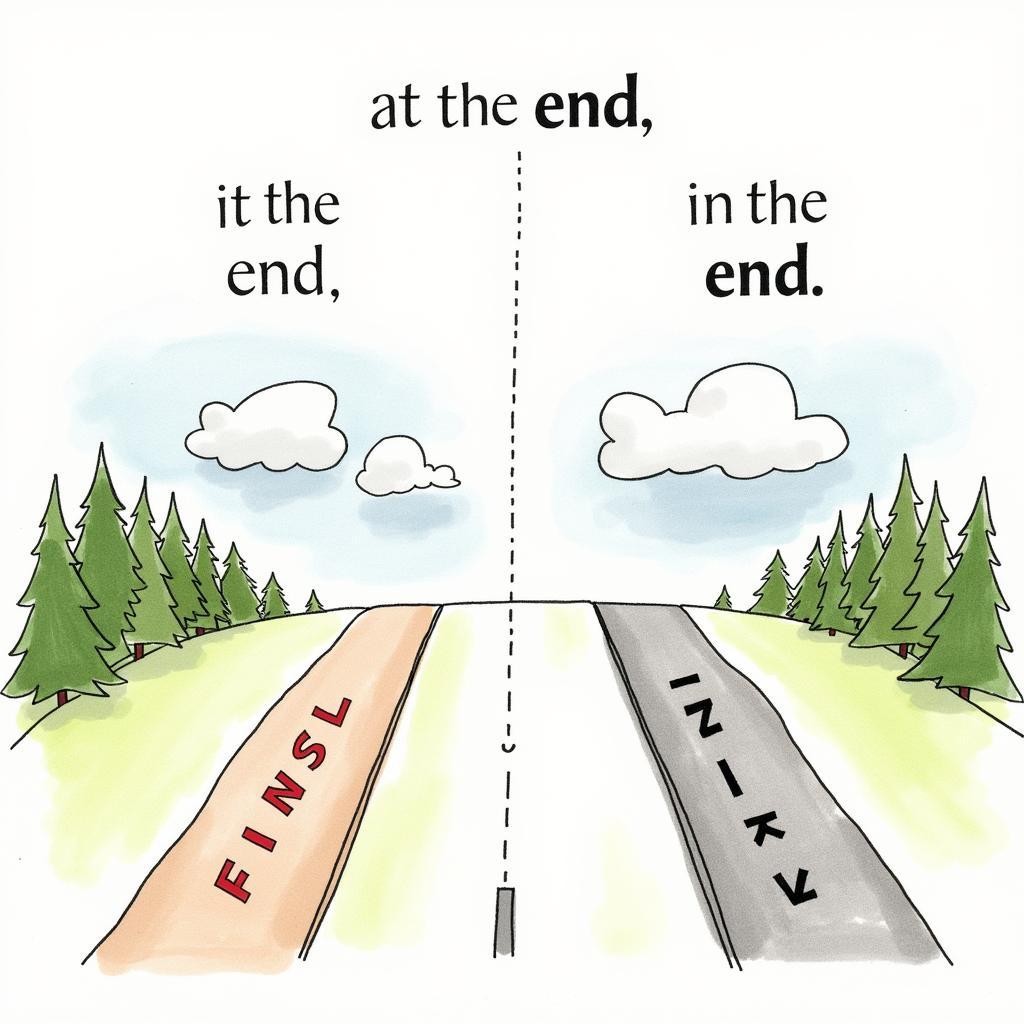The phrases “at the end” and “in the end” often cause confusion for English learners. While they may seem similar, they have distinct meanings and are used in different contexts. This article will delve into the nuances of “at the end” vs “in the end” to help you use them correctly and confidently.
 Difference between "at the end" and "in the end"
Difference between "at the end" and "in the end"
“At the End”: Marking a Specific Point
“At the end” refers to a specific point in time or space. It is often used with the preposition “of” to indicate the conclusion of something particular.
Examples:
- The players shook hands at the end of the game.
- Please submit your assignments at the end of the week.
- You’ll find the answer key at the end of the chapter.
In these examples, “at the end” signifies a definite point – the game’s conclusion, the week’s end, or the chapter’s final page.
“In the End”: Focusing on the Final Outcome
“In the end” highlights the final result or conclusion of a series of events. It often implies a sense of considering all the factors or possibilities before reaching a resolution.
Examples:
- In the end, they decided to postpone the trip due to bad weather.
- We faced many obstacles, but in the end, we achieved our goal.
- After much deliberation, in the end, she chose to accept the job offer.
Here, “in the end” emphasizes the ultimate decision or outcome – postponing the trip, achieving the goal, or accepting the job offer – after considering various factors.
Choosing the Right Phrase: Context is Key
The key to using “at the end” and “in the end” correctly lies in understanding the context and what you want to emphasize.
- Use “at the end” when referring to a specific point in time or space, marking the conclusion of something definite.
- Use “in the end” when focusing on the final result or outcome after a process, often implying a decision made after considering all factors.
 Using "at the end" and "in the end" in sentences
Using "at the end" and "in the end" in sentences
Mastering “At the End” vs “In the End”
By understanding the subtle but crucial differences between “at the end” and “in the end,” you can refine your English language skills and express yourself more precisely. Remember to consider the context, the specific point versus the final outcome, and choose the phrase that best suits your intended meaning.
FAQs
1. Can I use “at the end” and “in the end” interchangeably?
No, while they may seem similar, they have distinct meanings and using them interchangeably can alter the meaning of a sentence.
2. Is it grammatically incorrect to use “at the end” without “of”?
Not necessarily. You can use “at the end” without “of” in some cases, like “He arrived at the end.” However, using “of” is often necessary to specify what is ending.
3. What are some synonyms for “in the end”?
Some synonyms for “in the end” include “finally,” “eventually,” “ultimately,” and “at last.”
Need further assistance?
Contact us at Phone Number: 02838172459, Email: truyenthongbongda@gmail.com, or visit us at 596 Đ. Hậu Giang, P.12, Quận 6, Hồ Chí Minh 70000, Vietnam. Our customer support team is available 24/7.